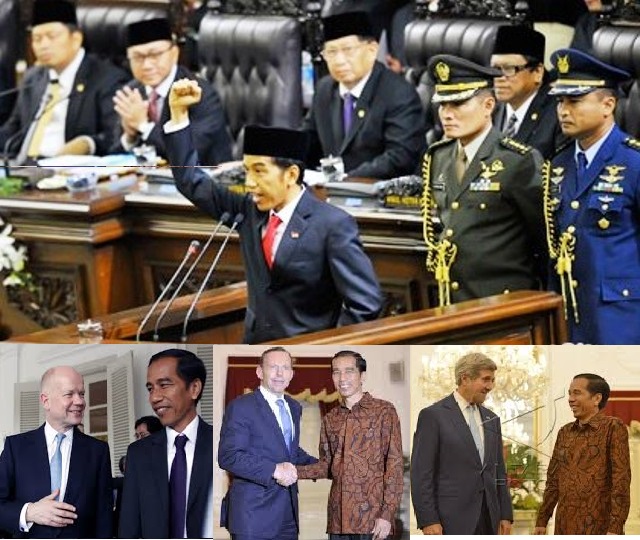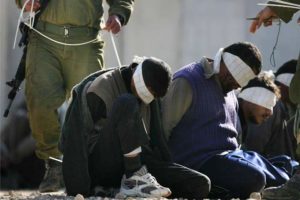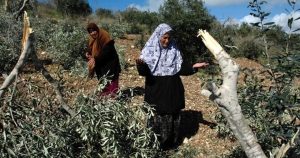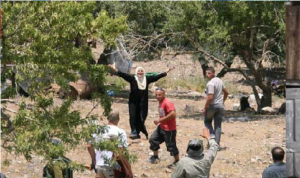
Joko Widodo
delivered his passionate inauguration speech. Small pictures: UK Foreign Minister William Hague, Australian PM Tony Abbot and US Secretary of State John Kerry paid courtesy calls on Indonesia’s new president." width="726" height="612" /> Main Picture: President Joko Widodo delivered his passionate inauguration speech. Small pictures: UK Foreign Minister William Hague, Australian PM Tony Abbot and US Secretary of State John Kerry paid courtesy calls on Indonesia’s new president.Indonesia’s new president is a favorite of non-Muslim people and the West
by Syarif Hidayat*
Joko Widodo (born 21 June 1961) was sworn in as the seventh president of the Republic of Indonesia in the Indonesian Parliament building (Gedung DPR/MPR-RI), Jakarta, Monday, October 20, 2014. Coined as ‘President of the People’s Choice,’ Joko Widodo is popularly known in Indonesia as Jokowi (an abbreviation of his full name). He was favored as a new president by the Indonesian minority and supported by the majority. He was previously Governor of Jakarta and Mayor of Surakarta.
Benedict Rogers in his article titled “Indonesia Is at a Crossroads – Its Future as a Pluralistic Democracy Hangs in the Balance” published in Megawati Institute website, megawatiinstitute.org, writes “Many have drawn comparisons between Jokowi and Obama. Like
Obama he has risen fast, coming to national attention only two years ago upon election as Governor of Jakarta. Like Obama, he represents change, his background is in local community politics and he inspires a hope among his supporters that is unparalleled.”
Also Read: Be Careful of the Trap of Deploying Peacekeeping Forces to Gaza
 He even bears a physical resemblance to the US President, and has chosen as his running mate the experienced former Vice-President Jusuf Kalla, who may perhaps be to Jokowi what Joseph Biden is to Obama, matching youth and vision with age and experience.
He even bears a physical resemblance to the US President, and has chosen as his running mate the experienced former Vice-President Jusuf Kalla, who may perhaps be to Jokowi what Joseph Biden is to Obama, matching youth and vision with age and experience.
“Anyone who values human rights and democracy, and especially freedom of religion, will be breathing a sigh of relief after the announcement that Joko Widodo (known as “Jokowi”) has been elected as President of Indonesia. After one of the most polarising presidential election campaigns in Indonesia’s recent history, and the most crucial, Indonesia has chosen as its new President a candidate who represents the future, is committed to strengthening democracy, and has a track record of defending religious pluralism and promoting harmony,” says Benedict Rogers commenting on the presidential election that was won by Jokowi.
(Benedict Rogers is an East Asia Team Leader at Christian Solidarity Worldwide, a UK-based human rights advocacy organisation working for freedom of religion or belief for all.)
His reputation for good governance in Solo paved the way to the governorship of the capital city of Jakarta in October 2012. For almost two years, Jokowi and his Christian deputy pioneered reforms in multiple sectors of the metropolitan, including economic growth, health and education systems, and good governance. Jokowi’s achievements landed him a spot among Fortune’s 50 World’s Greatest Leaders.
The populist president, Joko Widodo is of Javanese descent. He is the eldest son of Noto Mihardjo and Sudjiatmi Notomihardjo. He has three younger sisters, named Iit Sriyantini, Ida Yati and Titik Relawati. Before changing his name (changes of name are not unusual in Java), Joko Widodo was called Mulyono. His father came from Karanganyar, his grandparents came from a village in Boyolali. His education started in State Primary School 111, Tirtoyoso, known for being a school for less wealthy citizens.
Also Read: The Forty-Four-Days of Glory: Azerbaijan’s Struggle for Justice and Peace
Due to financial difficulties in his childhood, he had to work his way through primary school to earn enough money for school materials and pocket money. At twelve, he started working in his father’s furniture workshop. The evictions he experienced three times in his childhood affected his way of thinking and his leadership later on as the mayor of Surakarta (Solo) as he organised housing in the city.
After primary school, he continued his studies in SMP Negeri 1 Surakarta (middle school). He had wanted to continue his education in SMA Negeri 1 Surakarta (high school), but he failed the entrance exam and went to SMA Negeri 6 Surakarta instead. He continued his education in the Forestry Faculty of Gadjah Mada University. He made use of this chance to study the structure of wood, its utilisation, and its technology. He completed his degree with the thesis called: “Study on Plywood Consumption in Final Consumption in Surakarta municipality”.
Hope for Indonesian Minorities
Christians and other minority groups have gained new hope for good governance. Jokowi, a former furniture salesman who has won Indonesia’s presidential election, is a favorite of Christians in the Southeast Asian nation. The country’s election commission said Widodo, the first person who didn’t boast a military or elite background, won 53 percent of the July 9 vote, bringing a wave of hope for Indonesian Christians and the other minority groups. His challenger, former military man Prabowo Subianto, a onetime son-in-law to the late President Suharto, received 47 percent.
Also Read: Palestine Solidarity Month: A Collective Movement for Al-Aqsa and Palestine’s Freedom
Jokowi has been elected in one of the most remarkable exercises in democracy. In the world’s biggest archipelagic nation, more voters cast their vote on a single day than in any other nation at any time in history. India, the world’s biggest democracy, took five weeks to elect a parliament. The US has more eligible voters but only about 57 per cent turned out at the last election.
In Indonesia, on July 9, more than 70 per cent of the nation’s 194 million eligible voters (from a total population of 255 million) visited Indonesia’s nearly half a million polling stations and exercised their right to directly elect a new president. The Southeast Asian nation, the world’s 4th-most populous at 252 million, has the largest Muslim population of any nation but also has a sizable Christian population. It is 86 percent Muslim, six percent Protestant, three percent Catholic, and two percent Hindu.

Catholic priest Benny Susetyo: Indonesian Christians show a preference for Joko Widodo.
Jokowi is a favorite of Christians
Jokowi, a former furniture salesman who has won Indonesia’s presidential election, is a favorite of Christians in the Southeast Asian nation. This was reported by Fr. Benny Suseyto, secretary of the Commission for Interreligious Dialogue of the Catholic Bishops’ Conference to Fides Agency, explaining the reasons for the preference over the other candidate in the race, former general Prabowo Subianto.
Also Read: Hassan al-Turabi: A Controversial Thinker from Sudan
(Agenzia Fides or Fides news agency is the news agency of the Vatican. It is based in the Palazzo de Propaganda Fide in Vatican City. It is part of the Congregation for the Evangelization of Peoples. It was formed on June 5, 1927 as the first missionary news agency of the Roman Catholic Church and was approved by Pope Pius XI. Current director is prof. Luca de Mata.)
“Jokowi – Benny Suseyto explains – is a leader who has put on his agenda the issues of human rights and freedoms, the rights of minorities, the fight against religious intolerance. In addition to the urgent issue of the fight against corruption. He is a candidate who desires to lead a democratic and pluralistic Indonesia. He talks about peace, harmony, justice and the common good: he is well thought of by Christians”.
In Indonesian society – notes the priest – there is an ongoing process of social and cultural transformation in which new generations have a greater demographic weight: there are 75 million young voters who vote for a president for the first time. Young people are far from the old establishment that ruled the country, and as advocates of a renewal of the ruling classes, support Joko Widodo, the new man of politics.
“From the new President – concludes Fr. Suseyto – Christians expect him to defeat corruption, support the Pancasila , strengthen the rule of law by stopping the abuse of power and impunity of radical groups in society.” With regards to the elections, the Indonesian Bishops have spoken out recently, inviting the faithful to choose candidates who “have a desire to serve others rather than pursuing their own self-interest”, looking carefully at “who maintains high principles and values of democracy” and promotes tolerance.
Also Read: Who Exactly is the RSF Group Shaking Sudan?
“Jokowi is a law abiding man,” Christian political scholar Victor Silaen shared with Open Doors (Open Doors is the US based Christian organization that is serving prosecuted Christians worldwide).
Jokowi is determined to bring the spirit of fair, credential-based recruitment and appointment to the national arena. He plans to fill the ministerial cabinet with high caliber professionals regardless of their religious backgrounds. In this respect, Christians can take heart as they too, will have a shot at government positions and making influential decisions. “It’s a good beginning toward religious freedom, not only for Christians, but for all religious groups,” added Mr. Silaen.
 Jokowi is a man full of surprises
Jokowi is a man full of surprises
Greg Barton in his article titled “Indonesia’s new leader Joko Widodo is a man full of surprises” published in the Herald Sun, wrote THERE are 10 things you should know about Indonesia’s new President, Joko Widodo.
Also Read: The Two-State Solution (Palestine–Israel) in Historical Perspective
1. Jokowi, as he is popularly known, has been elected in one of the most remarkable exercises in democracy. In the world’s biggest archipelagic nation, more voters cast their vote on a single day than in any other nation at any time in history.
India, the world’s biggest democracy, took five weeks to elect a parliament. The US has more eligible voters but only about 57 per cent turned out at the last election. In Indonesia, on July 9, more than 70 per cent of the nation’s 194 million eligible voters (from a total population of 255 million) visited one of Indonesia’s nearly half a million polling stations and exercised their right to directly elect a new president.
In April, even more turned out to elect members of the national legislature and two other tiers of lawmakers. While Joko Widodo’s opponent, Prabowo Subianto — shattered by his defeat and refusing to accept the result — alleged massive fraud, all the evidence suggests that this month’s elections were remarkably clean and fair.
2. When Jokowi is officially sworn in on October 20, he will take the helm of what the World Bank recently announced was the world’s 10th-biggest economy (in purchasing power parity terms), just behind the UK and France but ahead of Italy, Spain, Canada and South Korea. The Australian economy, in comparison, the 19th-biggest on the list, is less than half the size of Indonesia’s.
Also Read: Enchanted by K-Dramas, Dragged into Slander: Time for Muslims to Rise!
3. As the global economy faces strong headwinds, Indonesia’s new President will face enormous challenges. For all its strength, the Indonesian economy lacks small and medium-sized enterprises. Ninety-seven per cent of all people employed work in the micro-enterprise sector. Nevertheless, as a successful furniture manufacturer, Jokowi knows a thing or two about SMEs and is already saying many of the right things about economic reform, including removing the bureaucratic obstacles to foreign and local investment.
4. At 53, Jokowi is a relatively young man with no connections to the Jakarta-based elite that has ruled Indonesia for almost 70 years. Coming from the small Central Java city of Solo, where he was twice elected mayor on the basis of his ambitious reform programs, before overcoming great odds to become governor of Jakarta in 2012, Jokowi is a complete outsider.
In stark contrast to Prabowo, former son-in-law of president Suharto, he has no big-money connections, links to aristocracy or personal wealth. The man who grew up in a flimsy rented hut on the banks of a river in Solo, where he helped collect scrap wood for his timber-merchant father after school, is criticised for being too skinny, looking too ordinary and wearing cheap shoes.
5. Despite his unremarkable appearance and modest provincial style, Jokowi is actually very comfortable speaking English and working internationally, having done both during his career as a small businessman and then mayor. His accent may be distinctly Javanese but his outlook is global.
Also Read: Creating Opportunity and Avoiding Misery; Lesson Learn on Waste Recycling Issue
6. He owes the party that nominated him, former president Megawati Sukarnoputri’s PDIP, nothing. She and her ambitious daughter, Puan, along with the party leadership, served him badly in the campaign and his victory on the back of an unlikely, grassroots-powered, one-man campaign gives him a strong personal mandate.
He will, of course, put together a cabinet in a coalition built around PDIP but it is likely to also include figures drawn from former president Suharto’s Golkar and president Yudhoyono’s Democrat Party, despite neither party supporting his electoral campaign.
7. He is clearly intent on putting together the best cabinet Indonesia has ever seen, based on merit and technocratic prowess rather than political backing. Jokowi has even put the names of prospective ministers up for online feedback, asking the public to guide his decision-making in an e-poll.
8. Recognising the scale of the challenges facing Indonesia, he has declared that his administration will focus not just on cutting red tape and overcoming bureaucratic inertia but also on developing the neglected eastern provinces, building up Indonesia’s fisheries and maritime resources and investing in much-needed large-scale infrastructure, including ports and roads.
Also Read: Between the Treaty of Hudaybiyyah and Ceasefire in Gaza
9. He is backing up his campaign slogan of a “mental revolution” by setting out the details of his plans to overhaul Indonesian education and training sectors in order to bring about a transformation in the way Indonesians think and work.
10. He is a metal head. Jokowi is a fan of thrash metal groups such as Lamb of God, Megadeth and Metallica. For many that might not seem significant but it tells us one very important thing: as is the case with the nation that he leads, there is much more to Jokowi than meets the eye.
His surprising taste in music reveals that he is a remarkably deep and complex figure, very Indonesian but also part of the modern, globalised world — a young leader for a youthful nation. Jokowi is a progressive thinker and a bold leader with a strong sense of integrity and the courage of his convictions.
That is good for Indonesia and, by extension, it is most certainly good for Australia and the other US-led western countries. (Greg Barton is Herb Feith Research Professor for the Study of Indonesia at Monash University)
Also Read: Peace Cannot Be Achieved Without a Palestinian State
NY Islamic Center Imam’s messages for Indonesian leaders
Imam of the Islamic Center in New York, Shamsi Ali, stated seven massages to be remembered by the elected leaders. Ali is an Indonesian who has been living in the US since 1998.
“As one of the people who cares my native country, let me send these following things,” he explained in his Facebook account as quoted by Mi’raj Islamic News Agency (MINA).
First, always remember that all creatures, including human souls, in the hands of the Lord. Therefore, both of you should start with contemplation of the greatness and power of God, the Lord of the heavens and the earth.
Second, Everything in the universe is ephemeral and the power is just part of the natural process of life and will surely end. Therefore, the power which is given should not make you lulled.
Third, Being a president and vice president is a “mandate” from the owner of the land, He is Allah and His servants . Therefore, be the leader with religious sincerity, keep the trust which is given to you both.
Fourth, hence it is a trust, the power should be seen as a “test” that might not only be judged by the people, but the most important is in front of the God in the day of judgment.
Fifth, let the people do party after the inauguration, but you should stopped at a mosque to do sujood, and ask for God to make it all easy for unifying the people in Indonesia.
Sixth, some promises that you both have conveyed to the people is a solemn promise and noted by Allah Subhanahu Wa Ta’ala. Therefore it should be realized. Promise to be honest, remain close to the people, working to achieve prosperity and social justice for all the people of the nation.
Seventh, people supported your idealism in the midst of aridity. Therefore, if you do not realize it, then the supporters would remind you. (T/P3/R03)
Mi’raj Islamic News Agency (MINA)
 *Senior Editor of Mi’raj Islamic News Agency (MINA) (He can be contacted via emails: [email protected] and [email protected])
*Senior Editor of Mi’raj Islamic News Agency (MINA) (He can be contacted via emails: [email protected] and [email protected])
Sources:
1.International News Agencies.
2.International online media
3.Muslims Websites
4.Christians Websites


































 Mina Indonesia
Mina Indonesia Mina Arabic
Mina Arabic